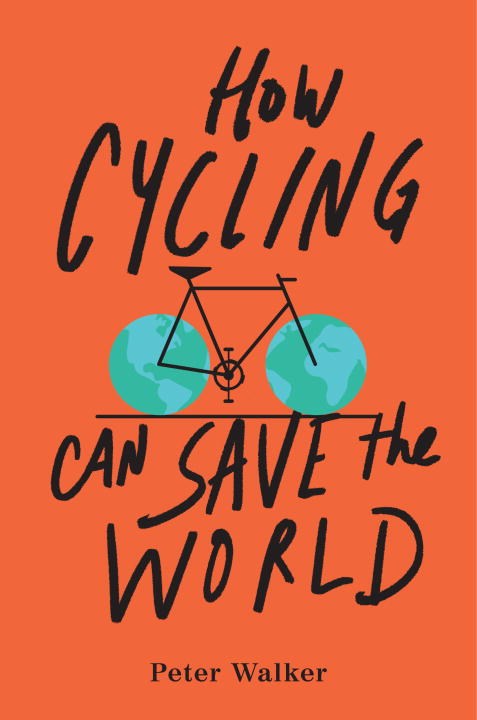How Cycling Can Save the World
June 07, 2017
A manifesto for everyday cycling from The Guardian's Peter Walker is an urgent call for today's world.

Bicycling is on my mind. Last year, I bought a lovely used Raleigh cruiser at the thrift store next to our office that needs just a few adjustments before it becomes my trusted commuter. Later this summer, I will take it for a spin in my Riverwest neighborhood’s annual 24-hour bike race (yes, 24 hours), its upright positioning all the better to see the happy faces of my fellow riders. There was a time in my adult life that I rode my bike everywhere, year round—even coming home from my bartending job in the middle of the night through -40 degree North Dakota winters. I was healthy, thrifty, and energetic. Over the years, due to circumstance, job changes, and injuries, my cycling has waxed and waned. I don’t know about you, but I need to be on the upswing of that trend again.
Today starts Bike to Work Week here in our hometown of Milwaukee, and my thoughts go to Peter Walker’s urgent manifesto for everyday two-wheel transportation, How Cycling Can Save the World. I started reading it a couple months ago, and it opened my mind to all of the large and small ways that we have discourage pedaling in our country and throughout the world.
From his post at the Guardian in the UK, Walker’s main argument is that cycling can help societies across the globe become safer, more equal, happier, and healthier—and all the good things that trickle down into our lives from those overarching goals.
As long as people of all ages see cycling as something that is dangerous (I might get hit by a car!), expensive (I don’t have the right bike/helmet/lock/gloves!), or exclusionary (There’s no one like me out there on the trails!), we will never see these very real benefits that come when a society en masse decides that cycling is a preferred mode of transportation.
“If cycling is going to save the world, it won’t be the Lycra-clad warriors who’ll be doing it.” Instead, he argues, it will be those that “view cycling as little more than a particularly efficient form of walking.”
In Walker’s book, you’ll learn about the ways in which bike lanes created only with paint actually make bicycling more dangerous, and why a society’s use of bike helmets is more an indication of the dangers of cars and our inadequate bike infrastructure, rather than a sign of a cyclist’s protection against head injury. You’ll also learn about how Finland, who in the 1970s had the world’s highest rate of heart disease, has seen that rate fall by 75% due to community-based cycling programs. The book is also packed with outrage, as we learn about 6-year-old Simone Langenhoff of the Netherlands, whose cycling death sparked a national movement, resulting in massive changes to Dutch transportation infrastructure and laws. Now almost 30 percent of all trips in that country are on two wheels.
In light of last week’s decision for the United States to pull out of the Paris Accord, I urge you to buy a copy of this book today, and share with all of your friends—and more importantly—your local politicians. It is a fast, inspirational read, filled with practical advice for how to make our communities, urban and rural, more accessible for bikers of all ages, genders, races, sizes, and abilities. We can save the world, one cyclist at a time.


